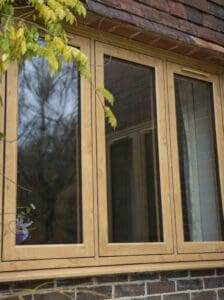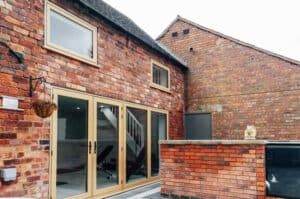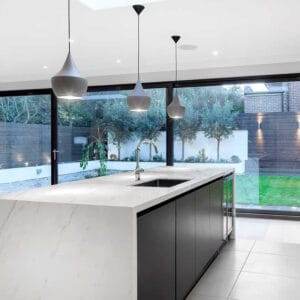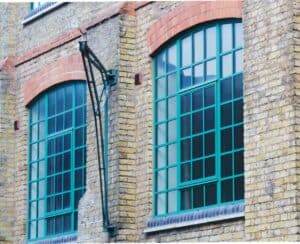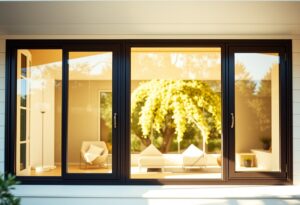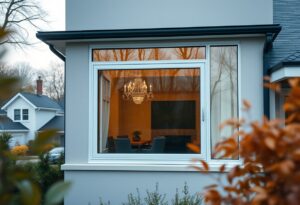Obtaining peace and quiet in a bustling world can be quite a challenge, especially when it comes to the constant barrage of outside noise infiltrating your living space. When it comes to creating a serene oasis in your home, soundproofing your windows and doors is essential for keeping unwanted noise at bay. With the right materials and techniques, you can significantly reduce the impact of traffic, construction, and neighbourhood disturbances. One of the most crucial elements in soundproofing your home is ensuring that your doors are properly sealed and insulated to prevent noise from seeping through the cracks. If you’re wondering how to achieve this, learn more about how to soundproof a door for a quieter and more peaceful home environment.
Key Takeaways:
- Quality windows and doors are essential for soundproofing your home, as they can significantly reduce noise from outside sources.
- Double or triple glazing can provide additional insulation and reduce sound transmission through windows, making them an effective choice for soundproofing.
- Installing weatherstripping and sealing gaps around windows and doors can help prevent noise from entering your home.
- Upgrading to solid-core doors can help block out unwanted noise, as they are more sound resistant than hollow-core doors.
- Consider acoustic curtains or shutters to further reduce noise transmission through windows and doors, providing an additional layer of soundproofing for your home.
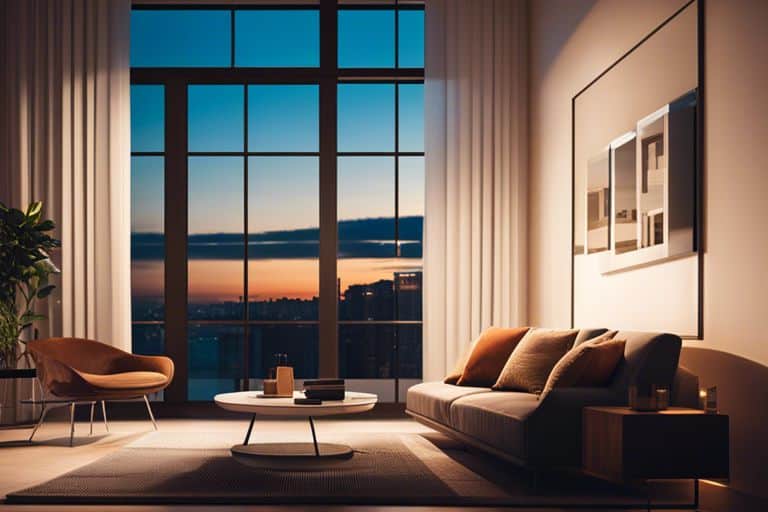
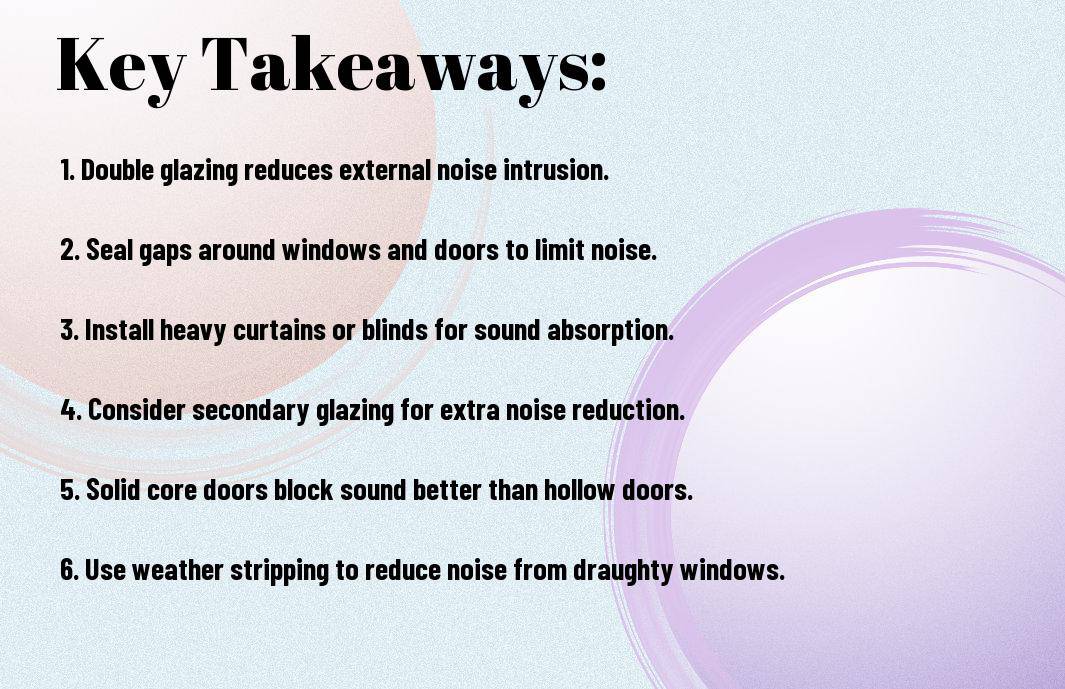
Assessing Your Soundproofing Needs
Before embarking on your soundproofing journey, it is crucial to assess the specific needs of your home. This will help you determine the areas that require the most attention and the best solutions for your soundproofing needs. To start, consider the sources of noise that are most bothersome and disruptive to your daily life.
For a comprehensive guide on how to soundproof a window, check out How to Soundproof a Window: 4 Effective Ways. This resource will provide valuable insights into addressing one of the most common sources of noise infiltration in homes.
Identifying Noisy Areas in Your Home
Begin by identifying the areas in your home where noise infiltration is most noticeable. These may include high-traffic areas, near a busy street, or adjacent to noisy neighbours. By pinpointing these areas, you can prioritise your soundproofing efforts and focus on the most critical sections of your home.
Take note of the times when noise is most prevalent, as this will help determine the level of soundproofing required for each specific area. This careful assessment will enable you to tailor your soundproofing solutions to address the unique noise challenges in your home.
Evaluating Window and Door Vulnerabilities
Windows and doors are primary points of entry for external noise. Assess the condition of your windows and doors, paying attention to any gaps, cracks, or poor insulation that may be contributing to noise infiltration. Thoroughly inspect these vulnerable areas to determine the extent of the problem before seeking appropriate remedies.
Consider the type of windows and doors in your home and their potential for impactful soundproofing solutions. Whether you have single-pane windows or hollow-core doors, understanding their vulnerabilities is crucial for implementing effective soundproofing measures.
When evaluating window and door vulnerabilities, meticulous attention to detail is paramount in achieving optimal soundproofing results. By addressing these weak points, you can significantly reduce the impact of external noise on your home environment.
Soundproofing Your Windows
Types of Soundproof Windows
When it comes to soundproof windows, there are several options to consider. The most common types include double-glazed windows, laminated glass windows, and uPVC windows. Each of these options has its own unique features and benefits in terms of sound insulation, energy efficiency, and durability. After carefully assessing your specific needs and budget, you can determine which type of soundproof windows is the most suitable for your home. To make it easier for you, here is a breakdown of the different types of soundproof windows:
| Double-glazed windows | Laminated glass windows |
| uPVC windows | Benefits of each type |
| Cost considerations | Maintenance requirements |
| Energy efficiency | Sound insulation |
| Durability | Environmental impact |
After assessing these factors, you can make an informed decision on the best soundproof window solution for your home.
Installation and Maintenance of Soundproof Windows
Proper installation and regular maintenance are crucial for ensuring the effectiveness and longevity of soundproof windows. It is recommended to hire a professional to install soundproof windows, as improper installation can compromise their soundproofing capabilities and lead to various issues in the future. Additionally, regular maintenance, such as cleaning and lubricating moving parts, is essential for preserving the performance and appearance of soundproof windows.
After installing soundproof windows, it is important to follow the manufacturer’s guidelines for maintenance and care. This includes regular inspections to identify any signs of wear or damage, as well as addressing any issues promptly to prevent further damage and maintain the optimal soundproofing of the windows.
DIY Solutions for Window Soundproofing
For those looking for more affordable options or temporary solutions, there are several DIY soundproofing methods for windows. These can include using soundproof curtains, weather-stripping, and window seals to reduce noise infiltration. DIY soundproofing solutions can be effective in improving the sound insulation of windows, especially for those on a budget.
When implementing DIY soundproofing solutions, it is important to carefully follow instructions and use the appropriate materials to achieve the desired acoustic improvement without compromising the functionality of the windows.
Cost Considerations and Budgeting
When considering soundproof windows, it is important to factor in the overall cost and budget for the project. The initial investment for soundproof windows may be higher than traditional windows, but the long-term benefits in terms of noise reduction, energy efficiency, and comfort can justify the expense. It is crucial to assess the cost considerations and budget accordingly to ensure that the chosen soundproof windows meet your specific requirements without exceeding your financial limitations.
Soundproofing Your Doors
Doors are a common entry point for noise to enter your home. Soundproofing your doors can significantly reduce the amount of noise that seeps through, creating a quieter and more peaceful living environment.
Choosing the Right Soundproof Doors
When it comes to soundproofing your doors, choosing the right materials is crucial. Solid-core doors made of heavy materials such as wood or metal are effective at blocking out noise compared to hollow-core doors. Additionally, consider installing doors with a high Sound Transmission Class (STC) rating, which indicates their ability to reduce sound transmission.
Furthermore, make sure to pay attention to the door frame and its fit. A well-insulated and tightly sealed door frame can help prevent sound from leaking through the gaps around the door, providing additional soundproofing benefits.
The Role of Weatherstripping and Seals
Weatherstripping and seals play a crucial role in soundproofing your doors. By sealing the gaps between the door and the frame, they prevent sound from travelling through these openings. Installing silicone or rubber seals around the perimeter of the door can dramatically reduce the amount of noise that enters your home.
Effective weatherstripping and seals work in tandem with soundproof doors to create a comprehensive barrier against external noise, enhancing the overall soundproofing performance of your doors.
Upgrade your existing door with weatherstripping and seals to maximise its soundproofing potential and create a more peaceful indoor environment.
Advanced Door Soundproofing Techniques
For those seeking advanced soundproofing capabilities, several techniques can be employed to enhance the soundproofing performance of your doors. These include:
- Installation of door sweeps: These can be installed at the bottom of the door to block out sound from entering through the gap between the door and the floor.
- Use of soundproof curtains or blankets: Hang these over the doors to add an extra layer of sound insulation.
| Technique | Description |
| Installation of door sweeps | Block out sound from the gap between the door and the floor. |
| Use of soundproof curtains or blankets | Add an extra layer of sound insulation over the doors. |
Implementing these advanced soundproofing techniques can take your door soundproofing to the next level, providing even greater protection against unwanted noise.

Additional Soundproofing Measures
While soundproof windows and doors can greatly reduce noise, there are additional measures you can take to further improve the sound insulation in your home.
Using Curtains and Wall Hangings for Extra Insulation
Thick, heavy curtains and wall hangings can provide extra insulation to help block out noise. Choose curtains made from dense, sound-absorbing materials such as velvet or heavy cotton, and consider adding a layer of blackout fabric for maximum soundproofing. Wall hangings such as tapestries or quilts can also help to absorb sound and reduce echo in a room.
The Impact of Flooring and Rugs on Sound Absorption
The type of flooring in your home can have a significant impact on sound absorption. Hard surfaces such as wood or tile can amplify noise, while soft materials like carpet can help to reduce it. Adding rugs to hard flooring can also increase sound absorption and help to create a quieter environment in your home.
Choosing the right materials for your curtains, wall hangings, and flooring can make a significant difference in the overall soundproofing of your home. By incorporating these additional measures, you can create a peaceful and quiet living space free from outside noise.
Soundproofing Your Home – Windows and Doors that Keep Noise Out
In conclusion, soundproofing your home by investing in windows and doors that keep noise out is a practical and effective solution for reducing unwanted outside noise. By installing double or triple glazed windows with sound-reducing properties and solid core doors with weatherstripping, you can significantly improve the sound insulation in your home. Additionally, considering the layout of your rooms and utilizing sound-absorbing materials such as curtains, rugs, and acoustic panels can further enhance the soundproofing effect. It is important to carefully consider the specific needs and budget constraints of your home in order to choose the best soundproofing options. With the right strategies in place, you can create a quieter and more peaceful living environment for you and your family.
FAQ
Q: Why is soundproofing important for windows and doors in a home?
A: Soundproofing windows and doors is important to create a peaceful and quiet environment inside your home, free from external noise pollution.
Q: What are the common sources of noise that come through windows and doors?
A: Common sources of noise that enter through windows and doors include traffic, construction, loud neighbours, and outdoor activities.
Q: What are some effective methods for soundproofing windows and doors?
A: Effective methods for soundproofing windows and doors include using double or triple glazing, installing soundproof curtains or blinds, and sealing gaps and cracks around the frames.
Q: How can I determine if my windows and doors need soundproofing?
A: You can determine if your windows and doors need soundproofing by noticing a significant amount of noise coming through, feeling drafts, or observing gaps and cracks in the frames.
Q: Are there any regulations or building codes related to soundproofing windows and doors?
A: Building regulations often include requirements for sound insulation, and it’s important to comply with these regulations when soundproofing windows and doors to ensure the safety and comfort of occupants.

